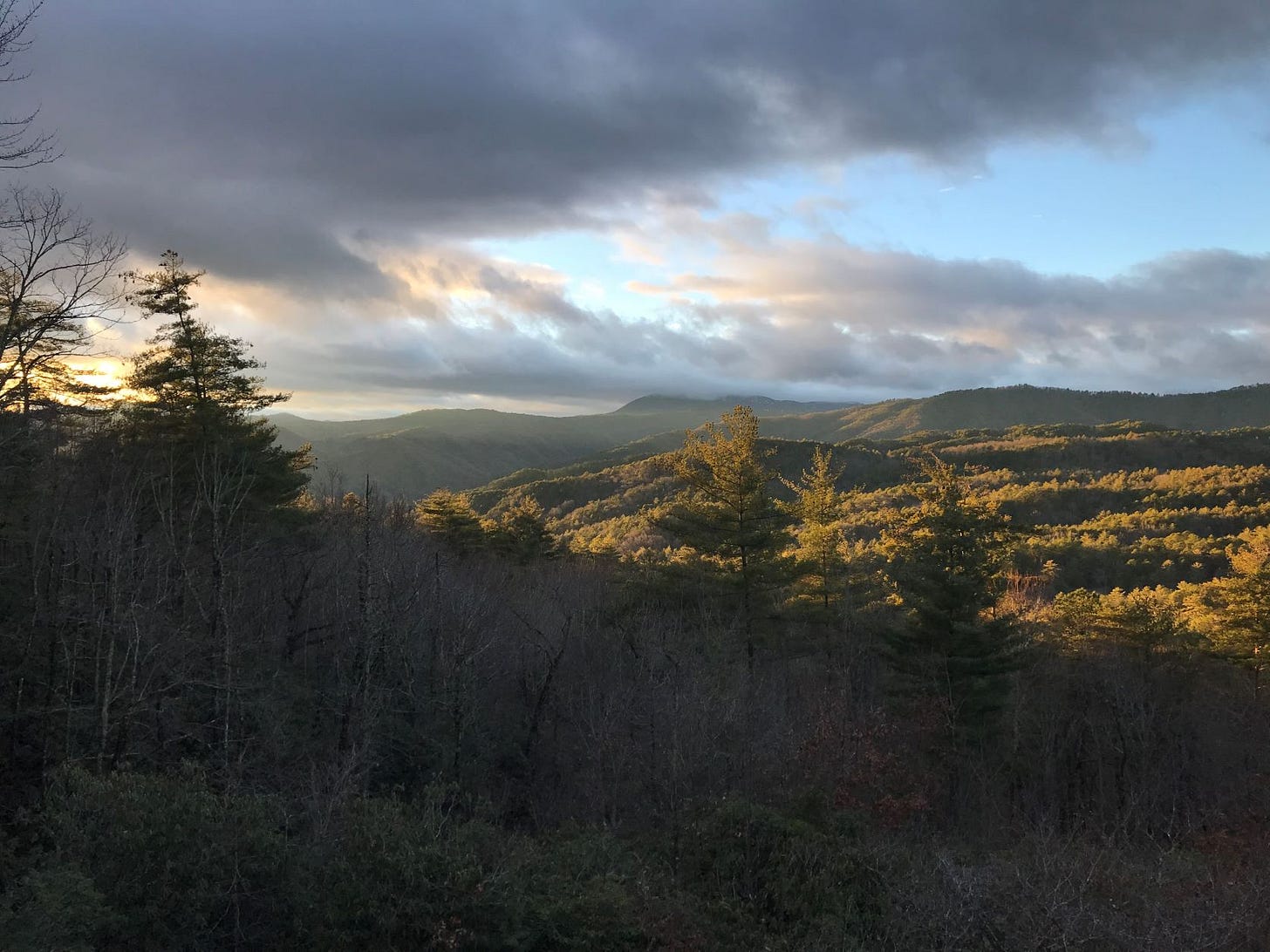What if a walk in the woods was – illegal?
The right to roam is an ancient custom
A fascinating social protest in the UK has awakened awareness of our lost connections with Nature.
Echoing the ancient custom, the movement is called “Right to Roam.” Most recently it involved a wealthy landowner in Dartmoor who doesn’t want people walking and camping on the 4,000 acres of a national park he owns. The legal case triggered a countrywide public outcry, with a court ruling in favor of the roamers.
Walking across the moor to camp under the stars, leaving no trace, has been an ancient tradition in Dartmoor
Leave-no-trace walking and camping on private property is common across Scotland. The UK is criss-crossed with ancient trackways called “holloways,” sunken roads eroded by centuries of human, animal and cart traffic. These roads may have started as a pilgrimage path, a route to a seaport, a boundary ditch or a drovers’ trail for moving livestock.
Many are medieval but some are much older, dating back to the Iron Age
But now, little of the English countryside is available for hiking and picnicking without landowner permission. The Dartmoor legal ruling is seen as the beginning of a new era with ongoing demands for access and politicians promising new policies.
UK national parks, amazingly, are largely privately owned with restricted access – some only 10% open to the public. Most national lands in the U.S. are, by contrast, publicly owned, free to roam and wild camp, with some regulation.
Interestingly, the UK has been the leader in studies on the need for more Nature in our modern lives and programs to get children back outside, perhaps because of this lack of access to green space.
Now, go wander outside!
3 Resources for You
Books, articles, tips, tools and advice to help you unplug. (Books may be aff links.)
Right to Roam movement. A few articles if you’d like to read more:
“Holloway” by Robert Macfarlane, Dan Richards and Stanley Donwood. I discovered Macfarlane about six years ago, was immediately captivated and bought all his books. He explores human interaction with the natural world and how each one shapes the other. A Cambridge author, he elegantly weaves together human and natural history with science and stunning prose.
The best, simplest productivity app is already on your phone. I’ve recently come across quotes from two tech founders, Reid Hoffman (LinkedIn) and Noah Kagan (AppSumo), who rely on airplane mode to eliminate screen distractions. What is Airplane Mode? My phone is always on silent, do not disturb or focus mode. But this one-sided control only shields me from hearing incoming texts or calls. It doesn’t prevent me from checking email and texts, using apps etc. Airplane mode disconnects your cellular voice and data connection, so you can’t repetitively check without shutting it off.
Don’t forget: Beautiful sunsets need cloudy skies. Paulo Coelho






As a one-time Brit who grew up hiking and walking the countryside I am right behind the Right to Roam movement ... especially as Scotland has had it for years to the benefit of all. Just one point of clarification though ... while it is true that so much National park land is in private hands access is not "walled off'. England has probably the world's most comprehensive network of Public Paths/Footpaths/Rights of Way across private and public land. Right to Roam already exists on those trails ... going off trail is another matter, as is wild camping but there are no gates and fences on the trails.
https://www.ramblers.org.uk/go-walking-hub/understanding-public-rights-way